
The DEW Line was of course an integrated chain of some 63 radar and communication stations, stretching 3,000 miles across Arctic Canada at approximately the 69th parallel, from Alaska to the eastern shore of Baffin Island. Completed in 1957, a later extension connected eastern Canada to Greenland. Built at the height of the Cold War, with its threat of nuclear annihilation, the system was designed to provide advance warning of imminent air attack to Canada and the United States. The DEW Line became a perfect metaphor for McLuhan on the role of art and the artist at a time of rapid social and technological change and he repeated the idea frequently.


McLuhan would later memorialize this by speaking of Canada as a Dew Line with respect to media effects and their global impact (punning on the acronym, D.E.W., of the 1954 military Distant Early Warning System of radar built across the North of the Continent of North America by the U.S., as an early warning system against nuclear attack).
"I think of art, at its most significant, as a DEW line, a Distant Early Warning system that can always be relied on to tell the old culture what is beginning to happen to it."




Gary Genesko : The Dewline Newsletter and Explorations:Concerning McLuhan's journals, almost no critical attention has been given to them. I provide the following information as a guideline for researchers. Twenty McLuhan Dew-Line Newsletters were published by the Human Development Corporation in New York between 1968 and 1970. The format changed from issue to issue. The designs were adventurous, and several included supplementary materials such as slides and playing cards. It is difficult to find a complete set. Not even the University of Toronto Archives holds the complete run. For a brief description of McLuhan's commercialization at the hands of Human Development Corp. President Eugene Schwartz, see P. Marchand, Marshall McLuhan: The Medium and the Messenger (Toronto: Random House, 1989), pp. 199-200. Of course, McLuhan was no stranger to promotional activities, a good example of which appeared in a letter he wrote to advice columnist Ann Landers (December 17, 1969) concerning the virtues of the 'Dew-Line Deck' (the supplemental playing cards issued with II/3 Nov.-Dec. 1969) as a brain-storming device. Each card contained an aphorism in relation to which problems could be discussed, stormed, bounced off, etc. (See L etters of Marshall McLuhan, Toronto: Oxford University Press, 1987, pp. 393-4). The complete run included: I/1 Black Is Not A Color (July 1968); I/2 When You Call Me That, Smile (August 1968); I/3 A Second Way To Read War And Peace In The Global Village [included a Sensory Training Kit consisting of the book mentioned and an exploratory essay] (Sept. 1968); I/4 McLuhan Futuregram, No. 1 (October 1968); I/5 Through The Vanishing Point (November 1968); I/6 Communism: Hard and Soft (December 1968); I/7 Vertical Suburbs And High-Rise Slums (January 1969); I/8 The Mini-State And The Future of Organization (Feb. 1969); I/9 Problems Of Communicating With People Through Media (March 1969); I/10 Breakdown As Breakthrough (April 1969) I/11 Strike The Set (May 1969); I/12 Ad Verse: Ad Junkt [included slides] (June 1969); II/1 Media And The Structured Society (July-August 1969); II/2 Inflation As Rim-Spin (Sept.-Oct 1969); II/3 The End of Steel and/or Steal: Corporate Criminality Vs. Collective Responsibility [included playing cards] (Nov.-Dec 1969); II/4 Agnew Agonistes (Jan.-Feb. 1970); II/5 Bridges (Mar.-April 1970): II/6 McLuhan On Russia: An Interview (May-June 1970); III/1 The Genuine Original Imitation Fake (July-Aug. 1970); III/2 The University And The City (Sept.-Oct. 1970).
The other major journal was Explorations. The first nine issues are perhaps most well known since selections from them were published in book form as Explorations in Commmunication, edited by Edmund Carpenter and McLuhan (Boston: Beacon, 1960). The first issue of the journal appeared in December 1953, and number nine in 1959. But that was not the end of it. Explorations became "a magazine within a magazine" in the University of Toronto alumni association publication, the Varsity Graduate. Beginning in the summer of 1964, the VG (later U of T Graduate)contained an insert of selected articles, edited by McLuhan alone. These unnumbered issues ended with the Christmas issue, 1967. Explorations picked up again with issue 21 in March 1968, and this numbered series ended with number 30 in June 1971. The final two issues appeared in 1972. Explorations ceased publication in May, 1972. The length of the journal's run (1953-1959; 1964-1972), in one form or another, is not well known.
----------------------------------------------------
Television in a New Light
Canada is the land of the dew line (distant early warning)
system. As the United States becomes a world environment, it has grave
need of distant early warning systems as a way of discovering what's
happened. Culturally, dew lines are a very valuable device. Two aspects
of my operation at our Center for Technology and Culture in Toronto seem
to me of special significance to the future of television. One of the
things which we discovered in recent months is that in every society,
every new environment creates an intense image of the old one; the new
one is invisible. Bonanza is not our present environment, but the old
one; and in darkest suburbia we latch onto this image of the old
environment. This is normal. While we live in the television environment,
we cannot see it.
I am also mainly concerned with perception - how to see things.
Apropos of this, someone said the other day that Canada has no classes,
only the Mass and the masses. Canada was created by rail only a hundred
years ago, and owes everything to the railway - the joining of French and
English Canada together was a railway action. Rail is a profoundly
centralizing power. Now with the airplane and television and radio,
Canada is coming to an end. A country three thousand miles long cannot be
held together by rail while putting up with airplanes, radio, and
television, which are decentralizing forces. Separatism is a simple fact
of radio and television.
Radio and television, like electric lights, are profoundly
decentralizing separatist forces. They give everyone anywhere, whether
under the ice of the arctic or here, the same information, the same
space, the same facilities. Anyone who talks about centralism in the
twentieth century is looking at the old technology - Bonanza - not the
new technology - electric technology. Our children grow up in a world
that is integrated electrically, that is, a world in which everything
happens at the same moment. It's an "all-at-once world" of happenings.
Then they are put into school rooms and colleges where everything is
classified and fragmented - where subjects are not interrelated. And they
really are baffled. This is what Paul Goodman calls "growing up absurd."
What could be more absurd than to go from an electric, integral world
into a disintegrated, fragmented, mechanical world of the old
nineteenth-century technology which we call our school system?
In the sixteenth century there was a painter known to us all by
the name of Hieronymus Bosch who painted this same dilemma in his
"Temptation of Saint Anthony" and other nightmares. The Sixteenth-century
experience was not unlike ours except that it was the reverse, sort of
negative to our positive. The old Medieval world of iconographic
sculptural space was confronted by a world suddenly integrated by visual
perspective space. So, in the "Temptation of Saint Anthony" you have the
old Medieval world of strange icons overlaid by the new perspective
Renaissance world of uniform, continuous, and connected space. To the
sixteenth-century person, this new world was an outrage because it
destroyed every known human value. What we now think of as the basis of
our whole civilization - namely uniform, connected, and continuous space,
rational space, rational order - was, in the sixteenth century, a
barbaric intruder into their order. Visual space was considered the
destroyer of all human order. Now we think of it as the basis of all
human order.
When electric circuitry comes into play, it creates not a visual
space at all, but an all- at-once simultaneous space. Consider the new jokes.
"Alexander Graham Koloski, the first telephone pole."
There is no concept of space, the joke has no starting line, no
connection: everything happens at once.
"What's purple and hums?"
"Well, naturally, an electric grape."
"Why does it hum?"
"It doesn't know the words."
These are totally irrational, not connected stories which our kids love.
This is the electric world, where everything happening at once is normal.
It is the world we live in and operate in, but not necessarily the world
we think in. Our thinking is all done still in the old nineteenth-
century world because everyone always lives in the world just behind -
the one they can see, like Bonanza. Bonanza is the world just behind,
where people feel safe. Each week 350 million people see Bonanza in
sixty-two different countries. They don't all see the same show,
obviously. In America Bonanza means "way-back-when." And to many of the
other sixty-two countries it means a-way-forward when we get there.
The electric world of separatism produces a world of disease and
discomfort and distress, which has in turn produced a whole batch of
jokes. In a wonderful little book, The Funny Man, Steve Allen says, "The
funny man is a man with a grievance." So, we have the grievance joke -
The cat is chasing the little mouse and the mouse finally eludes the cat,
dives under the floor and lies there panting while the cat prowls around.
After a while everything is quiet. The mouse begins to feel a little more
comfy and suddenly it hears a sort of "arf, arf, bow wow" sound and
decides the house dog must have arrived and chased the cat away. So up
pops the mouse. The cat grabs it, and as she chews it down the cat says,
"You know, it pays to be bi-lingual." Another example - The president of
Canadian Shell is talking to the president of American Shell a couple of
years hence, and the Canadian president is saying, "We must have a big
personnel integration program and totally reorganize the whole show." And
the American president says, "Say, who do you think you're talking to,
white boy?" That is a grievance joke with sort of a double barrel. Humor
is a profound area of research and social science because it shifts
around with the shifting area of sensitivity and grievance. Slang too is
very sensitively responsive to pressures in the environment and thus it
doesn't last long: when the pressure shifts, the slang disappears - it
fades out. Slang is a spontaneous and natural behavior which records
quite deep motivation. Slang, the grievance joke, and the joke without a
story line all belong to the electric world, where everything happens at
once.
The newspaper is like this. Any newspaper is crammed with events
in which there is no story line, no connection between any two events
except that which the reader may choose to make. There is a date line -
no story line. In an electric world the story line disappears quite
quickly like clothes lines, stag lines, party lies, hem lines, neck
lines. All forms of lineality disappear.
Television is a very nonlineal, nonstory-lie form as a medium.
Any story line that television has is borrowed from other media, like the
movie which has a natural story line. One of the effects, of course, of
the influence of television on the movie is that the Fellini world and
many of the new movies do not have a story line. The interchange of
influences between television and the movie has been extraordinary.
When television came in it went around the movie form and the
movie became an art form. The movie used to be vulgar trash; now it is
art. Whenever a new environment comes around an old environment, the old
environment becomes an art form: coach lamps, buggy wheels, and model-T's
anything. This applies at very high-brow levels. When the machine world
of railways and industry was new, it went around the old agricultural
world and turned it into poetry. The whole agrarian world became the
romantic movement, a great treasure and heritage. Meanwhile the new
mechanical world was abominated as monstrous. When electric circuitry
came in, it went around the mechanical world and turned the mechanical
world into an art form - abstract, nonrepresentative art. Whenever a new
environment appears it is spotted as the degrading and monstrous thing
and the old environment, which used to be degrading and monstrous,
becomes art. When will television become an art form? It is still
environmental. A simple answer is, of course, that television is not an
art form because there is nothing around it yet. There will be a moment
when television will become an art form and everyone will recognize it
and realize that it is a great art medium.
The western world organizes itself visually by connective,
uniform, and continuous space. The oriental world, antithetically,
organizes everything by spaces, by distances between sounds and objects,
not by connection. I read the other day a bit of advice to American
businessmen confronting Japanese clients: when you sit down with your
client, state your business in just a simple phrase and then be silent.
Thirty-five or forty-five minutes may go by. Say nothing. Every moment of
silence is working for you, because your client is inwardly meditating
your problem, your capacity, your pattern. He is deriving huge
satisfaction from this inward meditation; if you were to make some
connection between your problem and something else, this would destroy
the whole show. The oriental works by interval, not by connection, and
that is why we think he is inscrutable. We cannot visualize what is
happening. And, in the electric world in which we now live, everything
occurs by instantaneous little intervals rather than by connections. We
are orientalizing ourselves at a furious clip. The western world is going
east much faster than the eastern world is going west. The confusion this
creates is reminiscent of the Hieronymus Bosch problem. We all see how
the eastern world is acquiring some of our old nineteenth-century
technology - tractors and such - but it is not nearly so obvious to us
why we should be going east. We cannot perceive our own oriental drift
because it is so environmental as to be invisible. We do perceive their
western drift, on the other hand, and it does not make us very happy. We
figure they must be rivals and so we must deal with them as with any
other rivals - crush them. For ourselves, however, we wouldn't know how
to prescribe for an illness or distemper such as orientalism in our own
midst. It is like Alice in Wonderland. Alice was in a world where no
visual values existed, where there were no connections and no ground
rules she had ever heard of.
This kind of world has recently been looked into by Edward T.
Hall in a really fascinating and relevant book called Hidden Dimension.
Mr. Hall looks at space as it relates us to one another in social life
and in entertainment. He has spent a good many years studying the
distances which people in different cultures use between themselves in
conversation. For example, there is a space used in North America between
people that makes it very difficult for husbands to know the color of
their wives' eyes. If you ask one of them suddenly, "What is the color of
your wife's eyes?" the chances are he won't know. Now, this has something
to do with space. Hall has especially noticed that the space used in Arab
countries for conversation never exceeds eight inches, the reason being
that the Arab must be able to smell the person he is speaking to in order
to feel at ease or friendly. If he is unable to smell his interlocutor he
at once senses hostility. Hall tells this story. "I was sitting in a
hotel lobby in Chicago watching an elevator for a friend to emerge when I
suddenly became aware of a strange presence beside me. And this presence
kept sort of crowding and being somewhat oppressive and boorish and
obnoxious. And I was determined," he said, "not to heed this character
and not to be upset until suddenly he was joined by a group of friends
and I realized with a sigh of relief they were Arabs." Now, he said, "In
an Arab country any sitting person, any stationary person is fair game.
You shoot 'em down. Whereas a moving person, as in a motor car or on
foot, is sacrosanct, inviolate. You wouldn't dare interfere with a moving
object." In America, if you are sitting still, minding your own business,
you are inviolate. No one is going to bother you.
Every new medium changes our whole sense of spacial orientation.
Since television, our kids have moved into the book. They now read five
inches away from the book; they try to get inside it. Television has
changed their whole special orientation to one another and to their world.
If I were to ask the television industry, "What is the business
you are really in?" the answer would have to be, "We are in the business
of reprogramming the sensory life of North America, changing the entire
outlook and experience of the population." This has nothing to do with
programs; it has everything to do with the medium. For example,
television as a medium is a total antithesis of the movie. In the movie
you sit and look at the screen. You are the camera eye. In television you
are the screen. You are the vanishing point as in an oriental picture.
The pictures goes inside you. In the movie, you go outside into the
world. In television you go inside yourself. The television form of
experience is profoundly and subliminally introverting, an inward depth,
meditative, oriental. The television child is a profoundly orientalized
being. And he will not accept goals as objects in the world to pursue. He
will accept a role, but he will not accept a goal. He goes inward. No
greater revolution has ever occurred to western man or any other society
in so short a time. This profound revolution of sensibility and
experience came without warning. No one has even noticed that it has
happened and the effects of it have created all sorts of discomfort and
perturbation and all sorts of questions from the press, but no
understanding. The person who sits in front of a television image is
covered with all those little dots; all the light charges at him and goes
inside him, wraps around him and he becomes "lord of the flies."
Let us contrast this; let us go back for a moment to what
happened to us long ago. There was a time in the Greek world when western
man was still tribal and still lived almost entirely by ear in the
Homeric and Hesiodic world of poetry. There is a wonderful book on this
one, too, called Preface to Plato by Eric Havelock, in which he describes
this transition from the world of the ear to the world of the eye. He got
on to this idea of oral versus written culture during his acquaintance
with Harold Innis while teaching in Toronto at Victoria College. Havelock
is now head of classics at yale and is the first classicist to have
written on this subject as far as I know. The book is really concerned
with how people organized their experience before Plato, before writing,
and why Plato suddenly took off in the particular way he did in the
direction of classified knowledge and ideas instead of operational wisdom
of this Homeric type.
The modern connection of this subject is the detribalization,
which occurs in any society, and which is now going on in many parts of
the world by virtue and benefit of the phonetic alphabet. To detribalize
people, push up the visual component in their experience to a new
intensity and the ear component dims down. They become detribalized,
fragmented people. Owen Barfield has a book on this subject called Saving
the Appearances, in which he describes the effect of literacy in creating
modern civilized man with his values of detachment - objectivity. Before
the alphabet, ordinary society was profoundly involved in its experience.
Auditory man is always involved, he is never detached. He has no
objectivity. The only sense of our many senses that gives us detachment,
noninvolvement and objectivity is the visual sense. Touch is profoundly
involving; so are movement, taste, and hearing. All of these senses have
been given back to us by electric technology. Man is becoming once more
deeply involved with everybody.
When Oedipus set out the find "Who done it?" in his tribal
society, who performed this heinous thing that caused all the misfortune
to Thebes, he began a profound "James Bond" investigation into the
criminality of the offense, and he quickly discovered "I done it." One of
the peculiarities, you see, of a totally involved society is that
everyone is totally responsible. In an electric world you cannot isolate
responsibility, for many things may be relevant here. Everyone is so
involved in every aspect of everything because it all happens at the same
time, at the same moment, by the same technology.
In Truman Capote's book In Cold Blood, he describes a world of
involvement in which everybody is the murderer of those people, including
the author. If there is a real murderer, it is probably the author or the
reader, one or the other. No one seems to know. There is no question of
pinpointing and saying "He did it, I saw him. Get him. Punish him." Under
electric conditions of information it is impossible to say "He done it."
It used to be possible to say this under the old conditions of
nineteenth-century classification and fragmentation. You could pick out
the criminal and punish him, but under electric circuitry where
everything happens at once - impractical. It is a little like the change
in the dance floor. There used to be a time when people would dance
around in a space doing fox trots and waltzes. On the new dance floor
this doesn't happen. Space has changed. You couldn't ask anybody doing a
frug or a watusi for the next dance or for any dance. The dancers make
their own space, their own world. They do not share it with anyone and
you could not share it with them. This is a new electronic space, which
the kids understand instinctively and are miming and dancing. It isn't
necessarily bad. It is just so different from anything we have ever
known. It is nonwestern. It is noncivilized. It is nonhuman. But it is
valid. The electric world has its own ground rules and belongs to our
technology - technology which we have made ourselves. All of the
technologies that create these new environments are ones which we make.
Now this brings us back another step to the difference between
the public and the mass. You hear the word mass used a great deal in our
world. It is like the difference between the fox-trot floor and the
frug-dancing space. The public is a world in which everybody has a little
point of view and a little fragment of space all his own, private. In the
mass audience everyone is involved in everybody and there is no
fragmentation and no point of view. The mass is a factor of speed, not of
quantity. This is literally and technically true. The mass is created by
speed and everyone reading the same thing or doing the same thing at the
same time. It is like Einstein's idea that any kind or particle of matter
can acquire infinite mass at the speed of light. Any minute, trite bits
of news acquires infinite potential at the speed of electricity. Anything
becomes momentous at electric speeds. And a mass audience is an audience
in which everyone experiences and participates with everybody and in
which nobody has a private identity. So the psychiatrist's couches today
are groaning with the weight of people asking, "Who am I? Please tell me
who I am." There is no identity left. At electric speeds nobody has a
private identity. Don't ask whether this is good or bad. It is an
inevitable function of electric speeds. Now I don't think that we have to
be all that helpless; we can do something about it, if we are determined.
The public, or la publique as Montaign called it, came into
existence in the sixteenth century with typography. It never existed in
the Middle Ages and it no longer exists today. Under electric conditions
there is no public. There is a mass, meaning everyone involved. How does
one conduct oneself in the midst of a mass of totally involved and
metaphysically merged entities? Nobody ever asked this question. I
personally don't find any satisfaction in complaining about it, or in
congratulating ourselves upon it. This is one of those things that really
happens: it is a happening. Many people, by comparing or contrasting it
with some other condition, in some other part of the world or in some
other time in our own world, may or may not take satisfaction in it, but
I personally see no basis for that. Montaigne was the first person to
discover la publique, and he was also the first person to discover
self-expression. He said in one of his essays, "I owe the public a
complete portrait of myself." As soon as the public exists, the author
exists. Until the author exists the public does not exist. They make each
other. So, when Montaigne discovered the public, he discovered
self-expression at the same moment.
Today self-expression is meaningless because there is no public.
There is only the mass. Anyone who attempts to attach artistic importance
to self-expression is talking back in the sixteenth or the nineteenth
centuries and not about our time. The whole complaint about elite art
versus mass art is irrelevant because it ignores the technologies in
question. Advertising can be regarded as a profoundly important art form,
but it is not private self- expression. The newspaper is a profoundly
important form of expression, but it's not self- expression. Take the
date line off a newspaper and it becomes an exotic and fascinating
surrealist poem. The old idea of elite art, which is now obsolete or
useless, was that it was a storehouse of values, of self-expression and
self-discovery, of great moments of individual experience stored up as in
a blood bank for the use of the community or of the privileged classes.
Today the whole idea of art is that it is an instrument of discovery and
perception: that real art, valuable art, offers you the means of
perception. Flaubert said, "Style, it is a way of seeing." It is not a
form of self-expression. Conrad said of his whole life's work, "It is
above all that you may see...That's why I made it." This is the technique
of perception. Art is not a consumer commodity. It is not a package, as
it may have been in the nineteenth century. Art is now a way of seeing,
of knowing, of experiencing a world, of exploring the universe - like
science. The difference between art and science ceased in 1850 with
Cezanne. Art, just as much as science, became a technique of
investigation and exploration of the universe with Cezanne, Bioleau, and
Flaubert.
Now, how does one relate art to new media, to television? What is
the future of art in relation to such a form? Keep in mind that with
typography and the printed word the public came into existence for the
first time. Printing was a technique so powerful that it created la
publique. The manuscript, the handwritten book could not produce a
public, a reading public or a market for goods or anything else. With the
uniformly produced, repeatable, printed book came, for the first time, a
commodity with uniform pricing. Until this time, there was nothing ever
produced uniformly with a price on it, except perhaps gold or bronze
coins. With the coming of the printed book you get the market and you get
the public, and television merges these two entities.
That backward or distant countries have difficulty in forming
markets or imitating our way of life need not be baffling. Indonesia or
India could not possibly have a pricing system until they have had long
centuries of our type of literacy and uniformity. Without our type of
uniformity you cannot say "this costs 39 cents." When you say to an
Indian or an Arab, "This costs so much, it's a fixed price," he simply
considers this a challenge to his dramatic ability. And so if you try to
say, "But look, t his is the price and has nothing to do with your desire
to dramatize your abilities," he will consider himself robbed, deprived,
degraded. Our pricing system degrades most countries: it robs and
impoverishes their whole way of life. And don't blame them for going into
Communism. Communism is the only possible out, just as the PX store is
the only possible out for people hurrying into uniform production.
Backward countries don't approach Communism as an ideal, they regard it
as the only possible means of mechanizing. In this regard, keep in mind
that when a new technology goes around an old society the society tends
to idealize its old technology - for example when Russia got our western
machine world, this drove them back into a furious idealization of their
primitivism. So you can depend on it. China will have suddenly emerging
within its borders a huge idealistic movement to glorify the ancient
China and to downgrade and stamp out all western forms. This is
inevitable. We did it to ourselves over and over again, and every country
that ever got a new technology always built up an ideal out of the old
one. The Romans idealized the Greeks, the Greeks had ideals of
spontaneity and barbarism. The Middle Ages idealized the Romans. the
Renaissance idealized the Middle Ages - witness Don Quixote - and the
eighteenth century idealized the Renaissance. We idealize the nineteenth
century. That's our image - Bonanza.
Another hypothesis of mine is that Batman is a nostalgia for the
world of fifteen-year- old experience, a nostalgia produced by color
television. Color television is a new environment producing nostalgia for
an old one. The old one is comic books. The year of the first comic book
in North America was 1935. So we are due for a little nostalgic revival
thanks to color television. Color television is also a new technology
going around the old black-white. It creates a new experience in our
world and will change the whole sensory life of North America. Color
television will have many of the effects that color has on other peoples:
for instance it will encourage them to cultivate very hot spiced foods.
Color television is a world that effects all the senses, not some of the
senses: it is not just a visual form. It will change our sense of hearing
as well as our sense of taste and our outlook. It's quite easy, once you
know the components of a new technology, to pin-point certain
developmental results in a given culture. The effect of color television,
for example, in India would be quite different from its effect in North
America. It is just the same with radio. Taking radio into Algeria has a
very different effect from taking it into England. In England the
auditory sense is stepped up to a new intensity in a culture that is
highly literate and this has a very different effect from stepping up the
auditory sense in a culture that is almost totally auditory, like North
Africa. Television has had a very different effect on France from what it
has had on us. It has Americanized France; it has Europeanized us.
Television has downgraded our visual life and values to the point of
rigor mortis. It has cooled us off the point almost of rigor mortis
politically. On the other hand, television has heated up the French, who
are not as visual as we. French television, by the way, has an 819 line
picture definition as compared to our 525 line definition. If we used 819
lines, this would help us out of a lot of nasty school problems, right
now. Our kids would find school easier because if the visual photographic
level of the medium were pushed up a bit, there would be a bridge between
their electric world and their school room which would ease their
problems. I suggest this hypothetically. But there are many reasons for
saying that it is almost certainly true.
Another basic fact about our electric environment: it creates a
total environment like the world of the hunter. Man entered the phase of
neolithic or specialized sedentary life 10 thousand years or more ago. He
sat down and began to specialize and weave baskets, make pots, and grow
crops, and domesticate animals. For many, many ages before that he had
been a hunter. With electronic technology man becomes a hunter again.
Hence James Bond, hence the sleuth, hence crime. Crime in our program
world has nothing to do with television as such. It has very much to do
with the fact that electronically the whole world becomes a hunting
ground for information, data. Modern man is the hunter, and crime and the
sleuth are natural modalities of the recovery of his ancient status. The
specialist man, the classifier, is not at home in the electronic world.
The electronic world rubs out all barriers, all partitions, all
classifications. That is why the existentialist discovers the difficulty
of having a personality in the modern world. Electrically, you cannot
have a private personality. It belongs to an older technology of data
classification: for example, "I'm a Hungarian, I'm a dentist, I'm 35, I
have three kids, that's me." Under electric conditions that's nobody!
People have trouble orienting themselves in this new environment because
no one told them that it has new ground rules; the ground rules are
always invisible anyway. So, the world of the hunter - our world; the
nineteenth century - the world of the planter. In our type of world, the
programming of the sensor environment becomes the normal activity of men.
At the Center, over the last three or four years, we have been
working on a project called a "Sensory Profile" of the entire Toronto
population. We have devised, by the most approved and fragmented and
quantitative social science procedures, a means of discovering what are
the sensory preferences of the entire Toronto population. Through the
speed of learning of our subjects, we have discovered how long it takes
them to recognize a visual, auditory, tactile, kinetic pattern within the
same pattern. With all these different sensory ways tied to computer
measuring devices, we have been able to profile their whole sensory life
and preferences and also the changes in that life over the past thirty
years. So we are in a very good position to tell you exactly what
happened to the sensory life of the Toronto population when television
came in. We would like to do this study in many other parts of the world,
because I am pretty sure it is an indispensable resource for decision
makers in every field. We would like to do it in Greece before they get
television and then afterwards. We would also like to test the effects of
other forms on the sensory lives of people of other countries.
Once you know the sensory profile of a people, how much intensity
they allow to their visual life or their auditory life, you can just read
it off as a a percentage of their whole sensorium. Then you can exactly
program the entertainment, or clothing, or colors, or food, or anything
for that area. You know exactly what is wanted. While this is neither
good nor bad, it might terrify some people. They are going to say, "Who
is going to decide?" This reaction is based upon the old technology of
fragmentation and specialism.
When this kind of knowledge comes in, people automatically assume
new responsibilities. New technologies create new roles and new
responsibilities. People respond to these, as our children are doing.
Jacques Ellul, in a wonderful book called Propaganda, mentions somewhere,
on a page or so, that in the whole history of mankind no child ever
worked as hard as the twentieth-century child - data processing. The
amount of information overload in the environment of the child today is
fantastic. No human being ever had to contend with such amounts of
information as a daily load for processing. Every one of our children
engages in a data-processing load that is overwhelming by any human
standards. So what do they do? They find short cuts. Our children become
mythic in their whole structuring of reality. Instead of classifying
data, they make myths. It is the only possible way of coping with the
overload.
IBM were the first people who asked themselves the question,
"What is the business we're really in?" They began to look into it and
they came up first with negative answers and said, "Well, whatever it is
we are not in the business of making business machines. That's not our
business." Further study, much further study, and they came up with this
answer: "We are in the business of data processing. It doesn't matter by
what means, that's our business." So, ever since then they have just gone
like a shot because they have not been worried about the particular
technology they're using. They know that data processing is permanent and
it doesn't matter what technology is used - an abacus will do just as
well as nose counting. They added one other thing - "We are in the
business of pattern recognition." That's their pet phrase and I think
this is the business that we are all in - the business of an electric
society is pattern recognition. Now in regard to a normal activity like
instruction or education, if you were to ask a teacher, an ordinary
person, "What is the business you are in?" he would say instruction;
instructing the young. He would be wrong. The business of teaching is to
save students' time, not to instruct them. Anyone can learn anything if
he has enough time. It's the same with the doctor. A doctor's job or a
hospital's job is not to cure people. It's to cure people much faster
than they would otherwise get well. It's to save the patients' time. When
you know your business, it saves a lot of headaches and a lot of
confusion. And I'm pretty sure that when we realize that a new technology
completely alters the sensory life of a whole population, we realize that
the business of most of us is reprogramming the sensory life of the
population. And when we know this, it creates a new kind of responsibility.
I've often been struck on the west coast by a strange behavioral
pattern or personal life style which I try to explain to myself by
saying, "Well, this is a part of the world that never had a nineteenth
century." There was no big metropolitan industrial time of highly
specialized activities with heavy industry and so on. You could say then
that the people in the west coast area leap-frogged out of the eighteenth
into the twentieth century, skipping the nineteenth. This is a big
advantage. The nineteenth century was the period of maximal fragmentation
and classification. People who leap-frogged out of the eighteenth into
the twentieth century are more imaginative, more flexible, more
perceptive than those who went through the nineteenth. The nineteenth
century was a gristmill that really broke people into little bits. On the
other hand it created many values that do not exist on the west coast -
privacy, separateness, neatness, order of all sorts of visual kinds. You
can see that the environment of parts of California is a tribute to the
eighteenth-century imaginative life. No nineteenth-century mind would
tolerate the environment of country left in its natural state.
Nineteenth-century man would tidy up the trees and the tree trunks. He
would level the whole terrain. He would give it the good old steam-roller
treatment. That was the nineteenth century - the century of the iron horse.
The safety car is an extraordinary indiction of the new mood in
America. It's the end of an era. The safety car is a way of saying,
"Look, we're not just interested in the engineering job here. We want to
know, what does it do to people? What's the effect it has on the people?"
And the effect is then built into the car. It is like the safety pin. A
safety pin is made by folding the thing back into itself and clasping it;
that is how the safety car will be made. Instead of just pointing it out
at an environment, you fold it back into itself and clasp it. The safety
car is a revolution. Are we ever going to get any safety media or safety
science?
The future of commercial television raises the theme of the
future of a good many things, including advertising. A student at the
Center wrote a paper for me the other day on the future of advertising,
pointing out that it has already got the future written all over it.
Advertising is substituting for product, because the consumer today gets
his satisfaction from the ad, not the product. This is only beginning.
More and more the satisfaction and the meaning of all life will come from
the ad and not from the product. In an information environment - the
electric light creates an information environment, so does television -
the service industries take over from hardware and products. The service
industries are all informational, like advertising. The future of
advertising on television is huge because it has to take on the whole job
of giving you the product and the effects of the product. Advertising
will be participation in the products, understanding and use and
satisfaction from them. So the future of commercial television has a
whole series of questions tied up in it. Don't try to hold it fixed in
front of you, and continue to look at it as if it were going to stay
fixed. Television will change totally, just as advertising is going to
change, just as work is changing. Work is becoming learning and knowing
rather than repetitive job holding.
The book, for example, under xerography, is taking on a totally
different character from the printed book. Xerography means applying
electric circuitry to an old mechanical process. With xerography the
reader becomes a publisher and printer and author. Any school- teacher
can publish her own text for her own class, by taking a page out of this
and a chapter out of that and handing it out. The publishers know this
and they are panicking. Circuitry means a total revolution in the book -
the book becomes a service. Instead of being a package, uniform and
repeatable, the book becomes a service to suit the needs of the private
person. Each book becomes a work of art, a private production. Even now
in Toronto, you can phone the electric information service and say, "I'm
working on Egyptian arithmetic and I know a little Arabic and I know a
little French; I know a little this and that. Please send me the latest."
And they will whisk off a batch of pages and cards to you, Xeroxed and
reproduced from all the latest journals in all the countries of the
world. It's a service for the schools. So the book, as a package
uniformly, repeatably produced is not in electric technology. On the
other hand, its being obsolescent doesn't at all mean that it's going to
disappear, it just means that the book will no longer set the ground rules.
That's the future of television. With cheap playback and video
playback and so on, the future of television will be very much like that
of the disc, the LP. Movies will be the same. The future of television
also relates to the Laser ray and putting the image in multidimension in
the middle of the room instead of on a panel and so on.
The future of commercial television really contains thirty or
forty different questions, the commercial one being one of the most
illusive because commerce in our world now just means information.
Management also is just an information service; it is part of the service
industries. Decision making is based entirely on information, and so is
medicine. Commerce in our world is taking on more and more of the
abstract character of information. The future of commercial television
combines the whole lot of marriages of technologies.
Now, I will hazard a guess about the future of the planet. It is
not quite as harrowing as you might suppose. When satellites and electric
information went around the planet, they created a man-made environment
around the planet which ended the planet as a human habitat and turned it
into the content of the man-made environment. The same thing will now
happen to the planet that's happened to every other environment when it
becomes the content of a new environment. It will become an art form. The
future of the planet is camp, an old nose cone. You know the story about
the two mice in the nose cone. One says to the other, "Hey, how do you
like this kind of work?" And the other one says, "Oh, well, I guess it's
better than cancer research." The planet as art form is going to get the
Williamsburg treatment. All the old nooks and crannies of the planet that
used to house strange or interesting phenomena and human behavior will be
reconstructed faithfully, archaeologically, and tenderly. The planet will
be dealt with as a work of art, you know, where the whole human
enterprise began. People will come back from other parts of the world,
other parts of the universe to have a look at Plymouth Rock, which should
have landed on the Pilgrims, as Stevenson said. And the planet is going
to become an old nose cone, an old hunk of camp, an old work of art; and
that then is the answer to television. With satellites, television ceases
to be environmental and becomes content, becomes art form. As long as it
has environmental power it is invisible, and as we notice only those
characteristics of it which belong to the old technology, movies. When
television becomes an old technology, we will really understand and
appreciate its glorious properties.
"Television in a New Light" in The Meaning of Commercial Television -
Stanley T. Donner, ed., University of Texas Press, 1966, pp. 87-107.













![et cetera : LOVE [1977]](https://blogger.googleusercontent.com/img/b/R29vZ2xl/AVvXsEgQ8s7vwLQuzHDNgqlfBacxRkEbOErToak9kmgFl0VmyIYEqS9qIzNIVcXKpzTncPhqo3TSgOyztAguIW6OlXw65aFHmpx6cRzmvCUQQMTwUGUOd0iE0GbJakEc3g3kBAJrvlZP4z3eesg/s1600/etc1977.jpg)









![MAC LUHAN [sic] : LOST IN TRANSLATION](https://blogger.googleusercontent.com/img/b/R29vZ2xl/AVvXsEg92tMqBMDA917NDivsS2ZwIirx9KTf24tOCgFFnK65p7Hw5dvqEh1e2aefCynj2UW8u-k8zwBXbjgypsCXUcv-5G7ZCsyDB13giHEjmhVISAeW-oI_JV6ePOXW_XBDPwy2nREAoqRU7Z8/s1600/MAC.jpg)






















![Les Yeux De Nadja [unpublished]](https://blogger.googleusercontent.com/img/b/R29vZ2xl/AVvXsEgrXohpIuxxYyjKoqBSQf3TpYGjnttZnjRFvmMdshadfnVKi7PMAjIqEuqYctZFXOFH2n-oH75oJx-YkaON7xvaZgVdvaK0zfSOurEmCKqmWF6qXh2F3VbqyixfGhvY4qH6LENMTs1wCIw/s1600/2xsurreal.jpg)
















![PIED PIPERS [MARSH] ALL](https://blogger.googleusercontent.com/img/b/R29vZ2xl/AVvXsEhqvGIGG9lWZYhFZRVc_V8EJG2apQBsys4kNQOQsA0EV6H6Tg-SMN0sX15NXy_GzsF3xAUdcb2QlfvJk-RU-Rha-3Eu5Mnglkf5KLe6pccVqAP4VR_Gi4fGQ716QSmDe3Zna5Uwct5d2sw/s1600/piedPiperMarshALL270.png)






























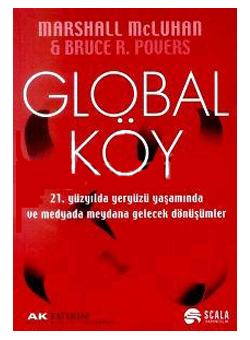






























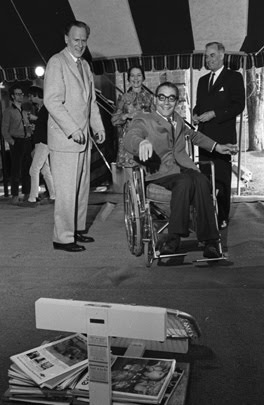




![PICNIC IN SPACE : The Great Minds of Our Time Film Series [1973]](https://blogger.googleusercontent.com/img/b/R29vZ2xl/AVvXsEjyov75DRIUBWcYLkzPYmupFy8CQ9dQ4Q798zDIN6jPNsSdBB_WuOcvPl4WjMAz10csG071oCO3BCUtIcKyHoIkCN0lCy0OxGCV_HrLXrGNKRpUiKMrqzkJh4LSc7jT_KrrqmClapSlVa8/s1600-r/PicnicInSpace.jpg)


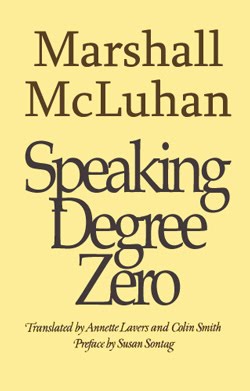






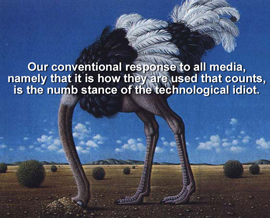


















![more Hidden ground [re:Bride] : the "flippancy" of tone seemed just "right"](https://blogger.googleusercontent.com/img/b/R29vZ2xl/AVvXsEg-hQyF9KGGhKYc73nUGmV1bStJ4fTJVh0-TL1ZtikLZEv5ppjhB3DOhFcVuzGq-kByrwtTAWgCcE173pA3UTIPe7h6xJjsPt7lRvNym007ZsdXenMDLNimKcwtaTOqkGleoxmXOeCKtxXL/s1600-r/LEAVISLEWIS.png)
















![BABA WAWA [TODAY SHOW, Toronto City Hall 1970]](https://blogger.googleusercontent.com/img/b/R29vZ2xl/AVvXsEjTZAIFkA07K36WGk951vmZnLPU99fOdNzlvVhyphenhyphenhKZEKu2n2AW5EA1CDZGaTk0aYRXUv7IOXG39igaikoE6SWm8j7QIG96wYRE54oBXwvlaNCJzp15vdkrcqR97IMMny-8sHjM-VDotTOaY/s1600-r/babaWawa.jpg)

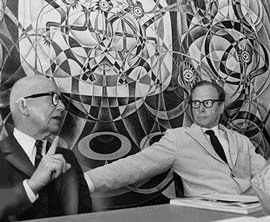

![enter the dragon : "typhon in america" [unpublished]](https://blogger.googleusercontent.com/img/b/R29vZ2xl/AVvXsEjdCnZdJ6JbaLc6hyUmUJo5UJ0m8WZSj_afYU9oRlHKIUgAIfcy2EPHNAptSRYEAmpOf0Xaa0B8iMgOTF302lY0Xmbyne0hvrdRyNo-t0Q-PPdzqX39uI3T5x5FppRPaQf9sSaXytrOpWVN/s1600-r/TIA.jpg)




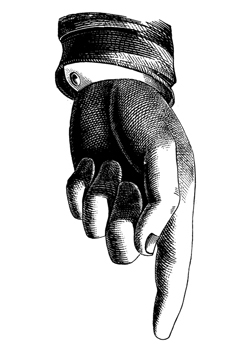






















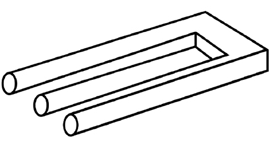









![Take Today [1972] : "the consumer becomes a producer..."](https://blogger.googleusercontent.com/img/b/R29vZ2xl/AVvXsEhA53bdVdTaXdQo1fDmrsI8oiAwF-3jampcanOq8uk3QMh8_ImkNsTiKd4-RnZY8Vbwqh1fymJiyCl1CSLcSonXHQM6XbnJYQi_Vu89gbAV4jVq73EtlbM3w6CthyphenhyphenV_pHEjE6eu_VhC489u/s1600-r/PROSUMER.jpg)








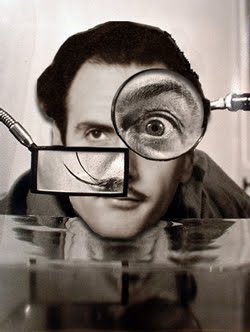















































































![" Outtragedy of poetscalds!, Acomedy of letters " [ FW 425.24]](https://blogger.googleusercontent.com/img/b/R29vZ2xl/AVvXsEhJMrJLN3oPUb25A2tjQtWZcZxA4wZB0IOvaIAvxosAUqlFc258HHvzvlnHHvKhKq7hG3epo76izY2Bu0HC3Cy-8S46Rf0Wni3L8j8jEfpT7sXK3UFlXBMtN2v2JdrmdxvWk8VWKjkhN4-9/s1600-r/preplexLP.png)







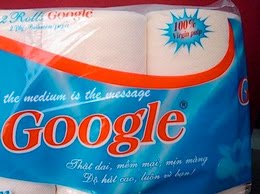



![mars[HAL]9000 : " Tomorrow is our permanent address."](https://blogger.googleusercontent.com/img/b/R29vZ2xl/AVvXsEhmblupqmUiuV3GbyayJiDRGEO63TEgwjHi-i8b0kVYDvXrKFWTCyl-e21la4QJXC4nDFDzx51Omi6fYPLJcqRHFoP6zSsL0CVZF98eMf6mxCE2WDfvMmT4q9G3X45-P0IYGDmliE0fCR3C/s1600-r/marsHAL9000_250.jpg)




























































































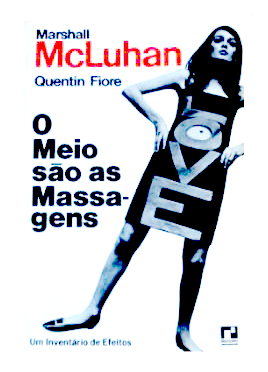





































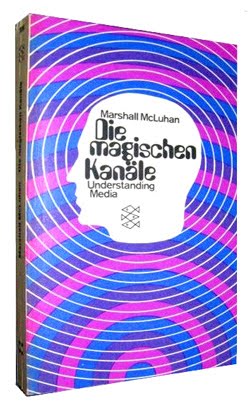
























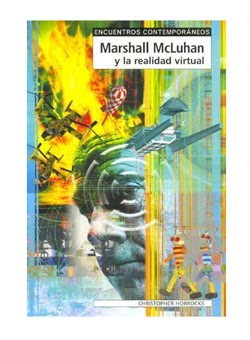




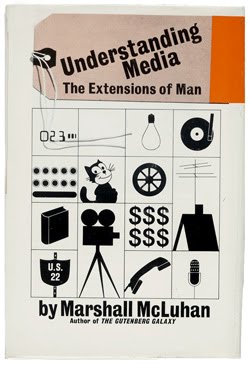


















































![Lucifer [from Latin] <br>meaning "light-bearer"](https://blogger.googleusercontent.com/img/b/R29vZ2xl/AVvXsEhq-2kZZOfh-Syv1Ewa0Ns2O6ZeP59pcsJp9ihhKcXCaovYZO_cKxffC5iSKOXFHr6E1jiHc6zedt1U6I95831RgpVdm3qk8-9C3y1yPyrCiQe4jgx-DsbeHnjKnw9t6Qx3ZM5TSYxiPj5H/s1600-r/lucifer.png)













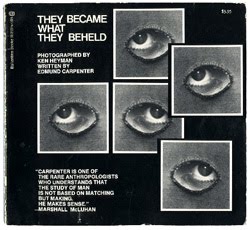























































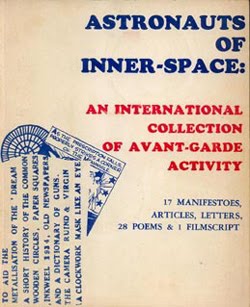































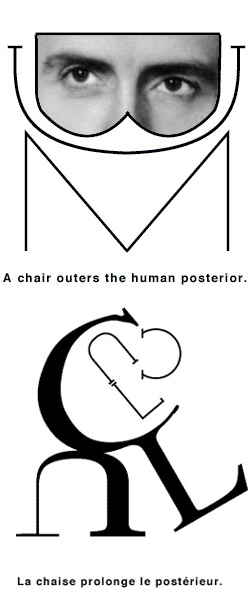






















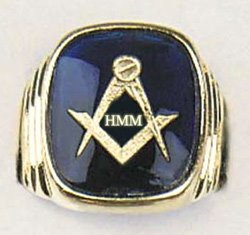















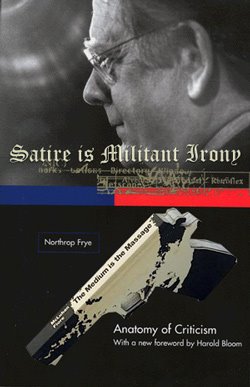
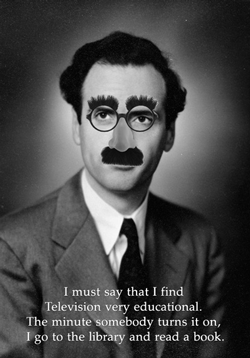






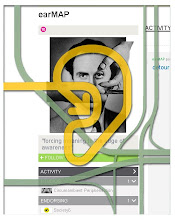















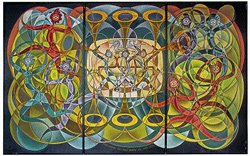










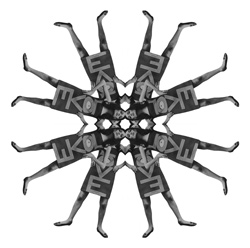



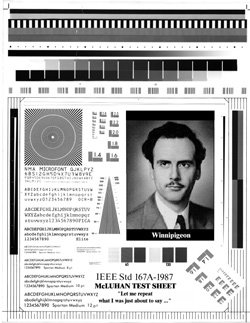

No comments:
Post a Comment